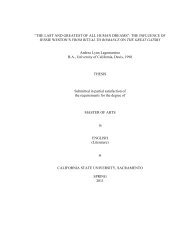Complete Thesis_double spaced abstract.pdf
Complete Thesis_double spaced abstract.pdf
Complete Thesis_double spaced abstract.pdf
You also want an ePaper? Increase the reach of your titles
YUMPU automatically turns print PDFs into web optimized ePapers that Google loves.
industrialize the economy were not attempts to create a middle class or to redistribute wealth<br />
from the elite classes to the masses at the bottom. Agricultural diversification, modernization and<br />
industrialization had little negative impact on the elite classes, yet the peasant classes were<br />
heavily impacted by these efforts. The complete lack of political representation for the mass<br />
majority of Guatemalans was a critical barrier to resolving or alleviating the issues prolonging<br />
and exacerbating suffering in Guatemala.<br />
The rising and persistent unemployment in Guatemala had several manmade causes and<br />
one natural cause. The first cause was the advance in agricultural mechanization during the<br />
1970s; the need for workers in certain sectors, harvesting, packing, bottling, and jarring<br />
decreased. The second cause for unemployment was a worldwide recession decreasing the<br />
demand for agricultural exports from the developing world. Decreased demand led to a decline in<br />
the prices of agricultural commodities. Guatemalan landowners planted less of particular crop(s)<br />
when their yields on the international market dropped. At the same time, land speculators drove<br />
up the price of land after the discovery of oil in Guatemala; large plantation owners would sell<br />
land to speculators for a profit instead of using the land to cultivate crops. A third cause for rising<br />
unemployment was a decrease in available credit to domestic businesses. As commodity prices<br />
fell domestic producers were unable to secure financing to continue planting year after year when<br />
the prices for the harvested crops did not provide sufficient profit. Seasonal and full time workers<br />
were laid off or not hired. The fourth cause for rising unemployment was due to the rise in<br />
exports that required less manpower than the typical agricultural commodities, such as coffee and<br />
cotton. Raising livestock and mining were less manpower intensive than industries involving the<br />
cultivation of agricultural crops in the 1970s and 1980s. The cultivation of coffee was one of the<br />
few agricultural industries where hiring was not harmed by mechanization, the hillside harvest of<br />
coffee in the highlands was almost impossible to mechanize. As a result, employment on the<br />
98


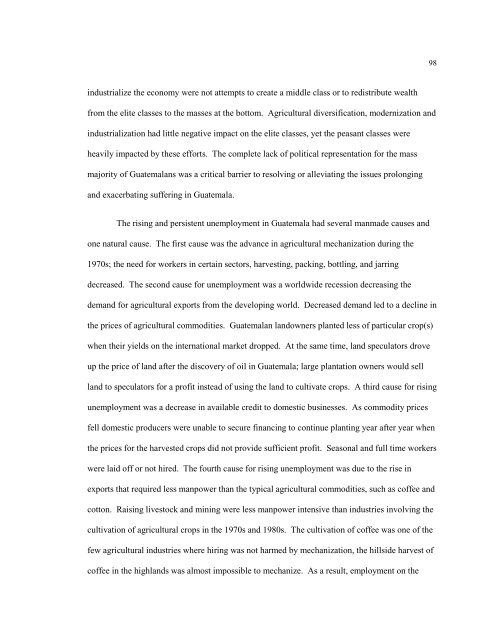
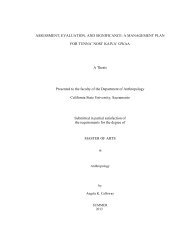
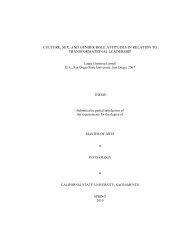
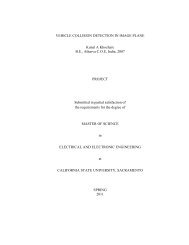
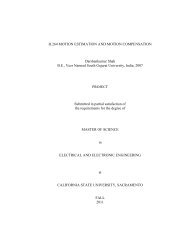
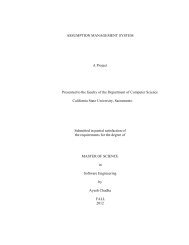
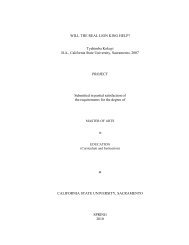
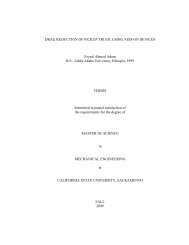
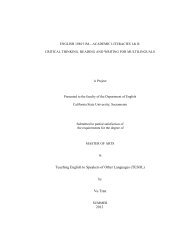
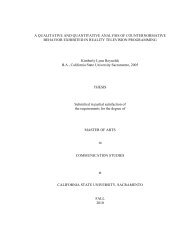
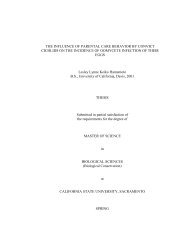
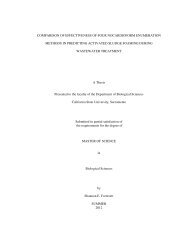
![Completed Thesis to Grad Studies[Final3].pdf](https://img.yumpu.com/17538645/1/190x245/completed-thesis-to-grad-studiesfinal3pdf.jpg?quality=85)
